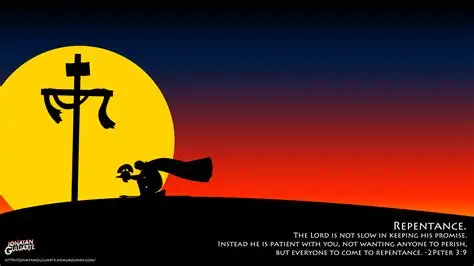TURNING BACK TO MOVE FORWARD
THE SEED
“Remember therefore from whence thou art fallen, and repent, and do the first works…” Revelation 2:5a (KJV)
Peter had followed Jesus for three years. He witnessed miracles, walked on water, and boldly declared his allegiance. Yet in a moment of pressure, he denied Jesus; not once, but three times. That failure broke him. However, Jesus did not discard Peter. Instead, He restored him. Peter’s turning back; his repentance and his willingness to reconnect with Jesus; was the beginning of a powerful future. He went on to become a foundational pillar of the early Church. Many times, we long to move forward, but the path requires going back; not to dwell in shame or regret, but to return to the place of surrender. Returning to the Word of God, to prayer, to our first love; this is often where the power to move forward lies. Just as a broken bone must be reset before healing can progress, spiritual growth sometimes requires us to retrace our steps and deal with what we’ve left unresolved. God is not finished with us. He invites us to come back; not to punish us, but to propel us to retrace our steps back to see, understand, correct and receive freshness from the Holy Spirit to go ahead. Let nothing stop you from turning back because it might just be your most powerful step forward.
BIBLE READING: Luke 22:54–62
PRAYER: Lord, help me return to You wholeheartedly. Heal my heart and restore my strength so I can walk forward in Your purpose.
ÍPADÀ SÉHÌN LÁTI LÈ TÈSÍWÁJÚ
IRUGBIN NAA
“Nítòrí náà rántí ibití o ti ṣubú, kí o sì ronúpìwàdà, kí o sì ṣe àwọn iṣé ìṣájú.” Ifihan 2: 5
Peteru tèlé Jésù fún odún méta gbáko. Ó rí àwọn iṣẹ́ ìyanu, ó rìn lórí omi, ó sì fi ìgboyà sọ ìfọkànsìn rẹ̀. Síbẹ̀ ní ìṣẹ́jú àáyá, ó sẹ́ Jésù; kíi ṣe lẹẹkan, ṣugbọn ni igba mẹta. Ikuna naa woo pale. fọ ọ. Ṣigba, Jesu ma gbẹkọ Pita dai gba. Kàkà bẹ́ẹ̀, Ó mú un padà bọ̀ sípò. Peteru yipada; ironupiwada rẹ ati ifẹra rẹ lati tun sopọ pẹlu Jesu; jẹ ibẹrẹ ti ọjọ iwaju ti o lagbara. Ó tẹ̀ síwájú láti di ọ̀wọ̀n ìpìlẹ̀ ti Ìjọ àkọ́kọ́. Ni ọpọlọpọ igba, a nfẹ lati lọ siwaju, ṣugbọn ọna naa nilo lilọ pada; Kì í ṣe láti máa gbé nínú ìtìjú tàbí kí a kábàámọ̀, bí kò ṣe láti padà sí ibi ìtẹríba. Pada si Ọrọ Ọlọrun, si adura, si ifẹ wa àkókó; níbí ni agbara lati te siwaju wa. Gẹ́gẹ́ bí egungun tó ti fọ́ gbọ́dọ̀ tún ṣe kí ìwòsàn tó lè tẹ̀ síwájú, bẹ́ẹ̀ náà ni ìdàgbàsókè tẹ̀mí máa ń béèrè lọ́wọ́ wa nígbà mìíràn láti tún ìṣísẹ̀ wa padà kí a sì kojú àwọn ohun tí a kò yanjú. Olorún ko pari pelu wa. Ó pè wá láti padà wá; kìí ṣe láti jẹ wá níyà, ṣùgbón lati dá àwọn ìgbésè wa pada sẹhin lati rí, loye, ṣe atunṣe ati gba tuntun lati ọdọ Ẹmi Mimọ fún ìtèsíwájú. Ma jẹ ki ohunkóhun dá ọ dúró lati yi pada nitori o le jẹ igbésè ti o lágbára jùlọ lati tesíwájú.
BIBELI KIKA: Lúùkù 22:54–62
ADURA: Oluwa, ran mi lọwọ lati pada sọdọ Rẹ tọkàntọkàn. Wo okan mi san, ki o si mu agbara mi pada ki nle rin siwaju ninu ipinnu Re.
